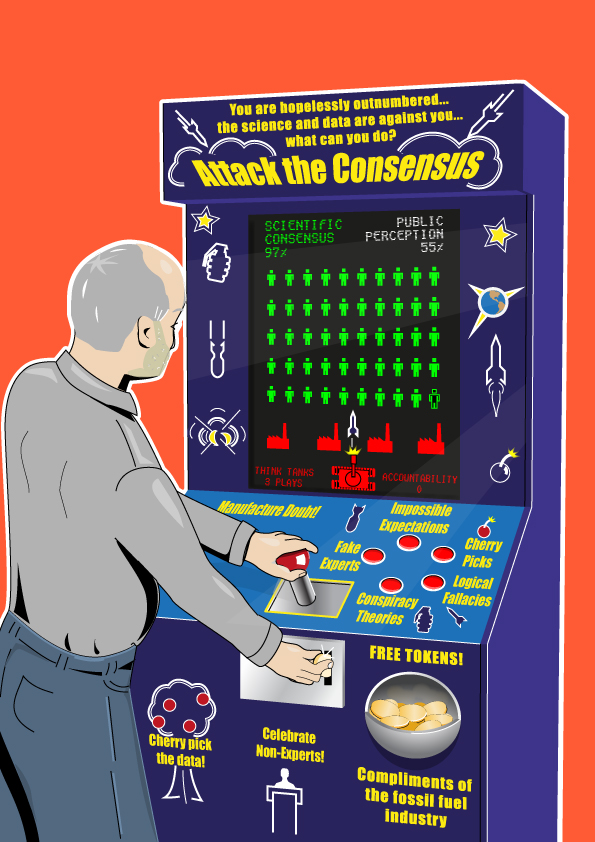
Gavin Schmidt … Speaking up and Speaking Out by Bruce Lieberman has generated a lively discussion and attracted the most comments of the articles posted on SkS this past week. The article was originally posted on the Yale Forum on Climate Change & the Media.
Created by jg
Deke Arndt, chief of the climate monitoring branch of the National Climatic Data Center in Asheville, N.C., said caution is needed when comparing El Niño and non-El Niño years.
"There is no universally accepted definition of El Niño-Southern Oscillation and much less an 'El Niño year,'" Arndt said in an email.
Arndt said that from an El Niño perspective, as well as looking at how monthly global average temperatures have played out this year, 2013 more closely resembles 2005 than either 2010 or 1998.
"If you think of the annual temperature like a 12-lap race (one lap per month), 1998 and 2010 got off to big early (warm!) leads and 'hung on' in the later laps," he said. "2005, and 2013 so far, started a bit more modestly and gained ground in the middle and late laps."
Toasty November Vaults 2013 Into Top 5 Warmest Years by Andrew Freedman, Climate Central, Dec 17, 2013
Phil Plait at Slate Bad Astronomy featured Cowtan & Way (2013) and The Escalator.
Joe Romm at Climate Progress talked about why the 4 Hiroshima atomic bombs per second metaphor is an effective form of climate communication.
The Cook et al. (2013) consensus paper was cited in Arctic marine fishes and their fisheries in light of global change.
Nathan Allen on Grist, Climate Progress, The Guardian (three times), and HotWhopper referenced the Cook et al. (2013) 97% consensus result.
The Center for Climatic Research (University of Wisconsin - Madison) has a 50-year tradition of conducting interdisciplinary research on the climate system. CCR was founded in 1962 by Professor Reid A. Bryson, whose career-long interests included global-scale climate processes and links between human societies and the atmosphere. Following Professor Bryson, subsequent CCR directors included Professors John Kutzbach, Zhengyu Liu, and Jack Williams.
CCR is part of the Nelson Institute for Environmental Studies and includes more than 50 faculty members, scientists, staff, and graduate students. The Center for Climatic Research brings together leading climate scientists with researchers in geography, botany, oceanography, and other disciplines to investigate our past, present, and future climate and their implications for 21st century climate change. CCR connects with units across UW-Madison as well as U.S. and international universities and research institutes. Our faculty, scientists, and students are based in departments such as Atmospheric and Oceanic Sciences, Botany, Geography, and Geosciences.
To learn more about the faculty and staff of CCR, click here.
Note: The above text is from the About page of the Center for Climatic Research website.
Posted by John Hartz on Sunday, 22 December, 2013
 |
The Skeptical Science website by Skeptical Science is licensed under a Creative Commons Attribution 3.0 Unported License. |